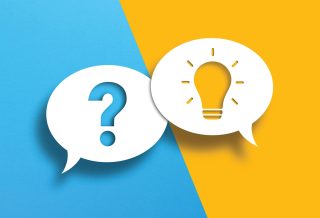FOCUS
How coaching takes root
3 key factors lead to successful implementation
By Jennifer D. Pierce, Melissa Weber-Mayrer and Melissa Irby
Categories: Coaching, Continuous improvement, Fundamentals, ImplementationDecember 2019
Vol. 40, No. 6
Read the remaining content with membership access. Join or log in below to continue.
Sed ut perspiciatis unde omnis iste natus error sit voluptatem accusantium doloremque laudantium, totam rem aperiam, eaque ipsa quae ab illo inventore veritatis et quasi architecto beatae vitae dicta sunt explicabo. Nemo enim ipsam voluptatem quia voluptas sit aspernatur aut odit aut fugit, sed quia consequuntur magni dolores eos qui ratione voluptatem sequi nesciunt. Neque porro quisquam est, qui dolorem ipsum quia dolor sit amet, consectetur, adipisci velit, sed quia non numquam eius modi tempora incidunt ut labore et dolore magnam aliquam quaerat voluptatem.
What Matters Now Network
Through participation in Learning Forward’s What Matters Now Network, Ohio coaches and district leaders recently began to support several teacher-based teams and building leadership teams in three areas: identifying evidence-based strategies for at-risk students; using a targeted decision tool to plan for instruction; and using Plan-Do-Study-Act cycles to determine how students respond to instruction.
Here’s how ODE leaders, in partnership with network facilitators, ensured strategic implementation of this new stream of coaching work:
- Competency: Coaches and district leaders need to have the capacity to support teacher-based teams and building leadership teams in identifying evidence-based strategies, using the decision tool, and conducting Plan-Do-Study-Act cycles. The What Matters Now Network offers professional learning in these three areas to coaches, district leaders, teacher-based teams, and building leadership teams.
- Organization: ODE leaders meet regularly with coaches, district leaders, teacher-based teams, and building leadership teams participating in the What Matters Now Network to build critical connections across all parts of the Ohio education system.
- Leadership: The What Matters Now Network requires shared leadership between coaches and district leaders. Therefore, both coaches and district leaders drive conversations at the teacher-team and building-team levels.
References
Fixsen, D.L., Naoom, S.F., Blase, K.A., Friedman, R.M., & Wallace, F. (2005). Implementation research: a synthesis of the literature. Tampa, FL: University of South Florida.
Freeman, J., Sugai, G., Simonsen, B., & Everett, S. (2017). MTSS coaching: Bridging knowing to doing. Theory Into Practice, 56(1), 29-37.
Goff, P., Guthrie, J.E., Goldring, E., & Bickman, L. (2014). Changing principals’ leadership through feedback and coaching. Journal of Educational Administration, 52(5), 682-704.
Kraft, M.A., Blazar, D., & Hogan, D. (2018). The effect of teacher coaching on instruction and achievement: A meta-analysis of the causal evidence. Review of Educational Research, 88(4), 547-588.
National Center for Education Statistics. (2017). Characteristics of public elementary and secondary schools in the United States: Results from the 2015-2016 national teacher and principal survey. NCES Number: 2017071. Available at nces.ed.gov/surveys/ntps/tables/Table_5_042617_fl_school.asp.
Nilsen, P. (2015). Making sense of implementation theories, models and frameworks. Implementation science, 10(1), 53.
Pierce, J.D. (2015). Teacher-coach alliance as a critical component of coaching: Effects of feedback and analysis on teacher practice. Doctoral dissertation, University of Washington.
Pierce, J. (2018). Support models: Matrix and discussion guide for K-12th grade systems. San Francisco, CA: WestEd.
Pierce, J. (2019). Creating the foundation: Coaching with alliance-building strategies. Manuscript submitted for publication.
Pierce, J. & Ferguson, A. (n.d.). Implementation guide for effective coaching of teachers. National Center for Systemic Improvement. Available at ncsi-library.wested.org/resources/60. Steiner, L., Hassel, E., & Hassel, B. (2008). School turnaround leaders: Competencies for success. Chapel Hill, NC: Public Impact.
Steiner, L., Hassel, E., & Hassel, B. (2008). School turnaround leaders: Competencies for success. Chapel Hill, NC: Public Impact.
Categories: Coaching, Continuous improvement, Fundamentals, Implementation
Recent Issues
LEARNING DESIGNS
February 2025
How we learn influences what we learn. This issue shares essential...
BUILDING BRIDGES
December 2024
Students benefit when educators bridge the continuum of professional...
CURRICULUM-BASED PROFESSIONAL LEARNING
October 2024
High-quality curriculum requires skilled educators to put it into...
LEARNING TO PIVOT
August 2024
Sometimes new information and situations call for major change. This issue...












